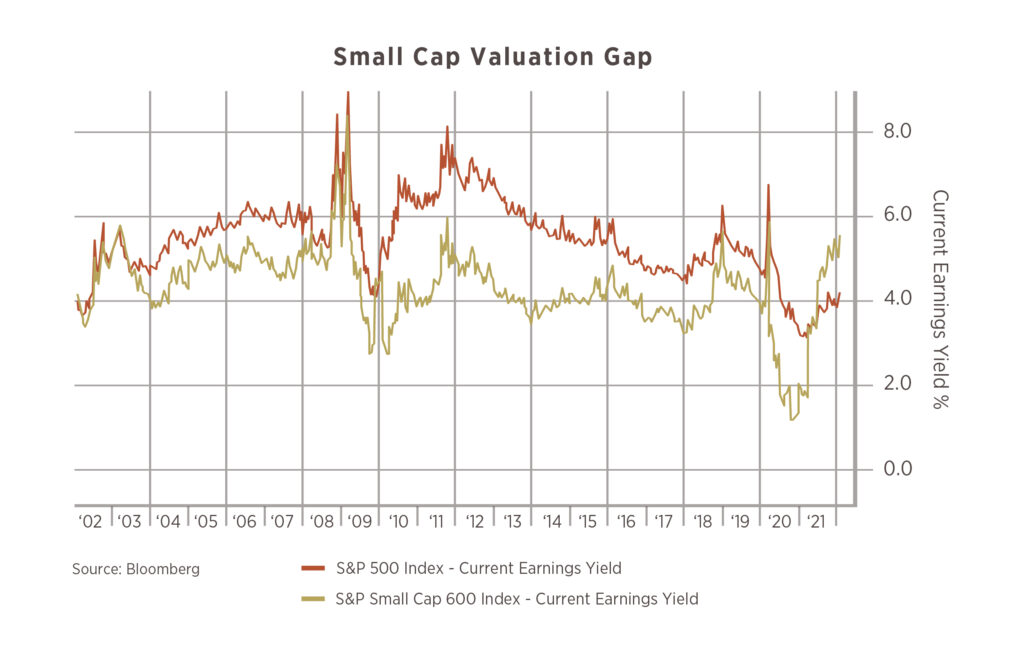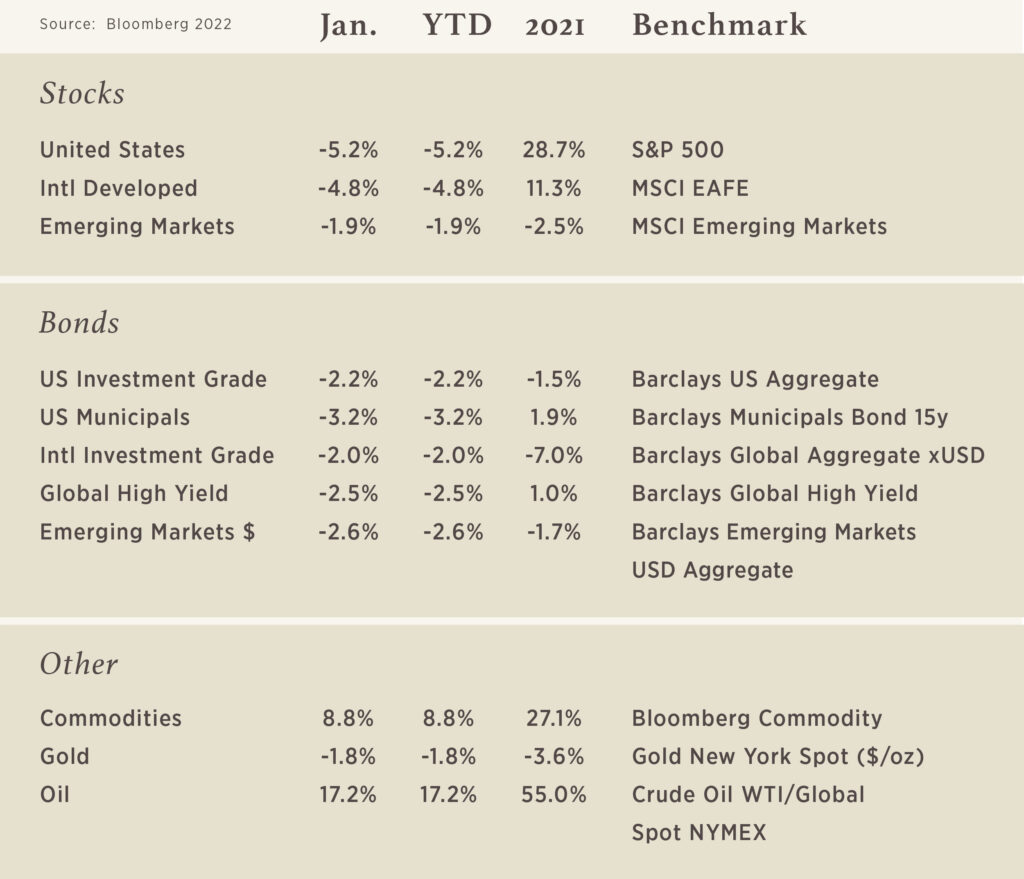Chart of the Month

Typically, smaller companies are expected to grow faster than larger companies, and as a result, smaller companies have higher P/E ratios. Recently, small cap stocks have declined, and as a result, are trading at cheaper valuations than larger companies. The chart shows the earnings yield (inverse of the P/E) for small cap stocks and large cap stocks. A higher earnings yield equals a cheaper valuation, and as the chart shows, small caps are trading at cheaper levels relative to both large caps and their own history. A crossover of this magnitude relative to large caps has not occurred since the dot-com bubble in the late 1990s. Since 2002, there have only been a handful of times when small cap stocks had an earnings yield this high.


Retirement Preparation Mistakes
Why are they made again and again?
Much is out there about the classic financial mistakes that plague start-ups, family businesses, corporations, and charities. Aside from these blunders, some classic financial missteps plague retirees.
Calling them “mistakes” may be a bit harsh, as not all of them represent errors in judgment. Yet whether they result from ignorance or fate, we need to be aware of them as we prepare for and enter retirement.
Timing Social Security. As Social Security benefits rise about 8% for every year you delay receiving them, waiting a few years to apply for benefits can position you for higher retirement income. Filing for your monthly benefits before you reach Social Security’s Full Retirement Age (FRA) can mean comparatively smaller monthly payments.1
Managing medical bills. Medicare will not pay for everything. Unless there’s a change in how the program works, you still may have a number of out-of-pocket costs, including dental and vision.
Underestimating longevity. Actuaries at the Social Security Administration project that around one third of today’s 65-year-olds will live to age 90, with about one in seven living 95 years or longer. The prospect of a 20- or 30-year retirement is not unreasonable, yet there is still a lingering cultural assumption that our retirements might duplicate the relatively brief ones of our parents.2
Withdrawal strategies. You may have heard of the “4% rule,” a guideline stating that you should take out only about 4% of your retirement savings annually. Some retirees try to abide by it.
So, why do others withdraw 7% or 8% a year?In the first phase of retirement, people tend to live it up; more free time naturally promotes new ventures and adventures and an inclination to live a bit more lavishly.
Talking about taxes. It can be a good idea to have both taxable and tax-advantaged accounts in retirement. Assuming your retirement will be long, you may want to assign this or that investment to its “preferred domain.” What does that mean? It means the taxable or tax-advantaged account that may be most appropriate for it as you pursue a better after-tax return for the entire portfolio.
Retiring with debts. Some find it harder to preserve (or accumulate) wealth when you are handing portions of it to creditors.
Putting college costs before retirement costs. There is no “financial aid” program for retirement. There are no “retirement loans.” Your children have their whole financial lives ahead of them.
Retiring with no investment strategy. Expect that retirement will have a few surprises; the absence of a strategy can leave people without guidance when those surprises happen.
These are some of the classic retirement mistakes. Why not attempt to avoid them? Take a little time to review and refine your retirement strategy in the company of the financial professional you know and trust.
This material was prepared by MarketingPro, Inc., and does not necessarily represent the views of the presenting party, nor their affiliates. This information has been derived from sources believed to be accurate. Please note – investing involves risk, and past performance is no guarantee of future results. The publisher is not engaged in rendering legal, accounting or other professional services. If assistance is needed, the reader is advised to engage the services of a competent professional. This information should not be construed as investment, tax or legal advice and may not be relied on for the purpose of avoiding any Federal tax penalty. This is neither a solicitation nor recommendation to purchase or sell any investment or insurance product or service, and should not be relied upon as such. All indices are unmanaged and are not illustrative of any particular investment.
Citations
1. Forbes.com, December 9, 2021
2. SSA.gov, January 24, 2022

